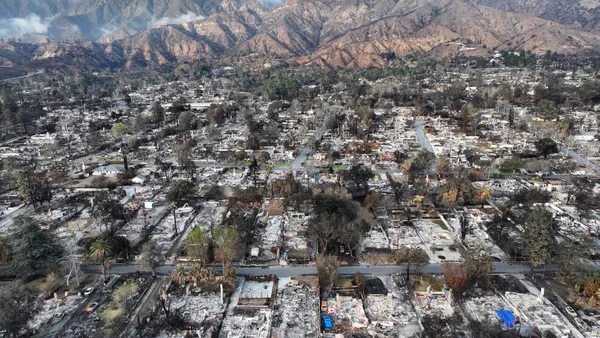Dive Brief:
- Airbnb is suing New York City over its new rules on short-term rentals, according to the New York Daily News and others.
- The new law, which Mayor Bill de Blasio signed earlier this month, requires short-term rental services that charge customers to provide data on them, and anyone that fails to disclose a listing will be fined $1,500 a month per listing.
- According to court documents cited in the Daily News, Airbnb called the new policy "an extraordinary act of government overreach" and accused the Mayor’s Office of Special Enforcement, which will handle the fines and data, of being in league with the hotel industry.
Dive Insight:
When the New York City Council passed these new regulations in July, both Airbnb and the Travel Technology Association (Travel Tech), the trade association for online short-term rental companies, blasted the decision and said lawmakers are in the pockets of the hotel industry. Travel Tech also criticized the requirements to turn over data on hosts and owners, calling it "an assault on data privacy on platforms that have prioritized protecting users since their creation."
The ill-feeling between Airbnb and the city is part of a wider trend in cities, where they look to regulate the short-term rental industry to try and get crises of housing affordability under control. Cities say that concern stems in part from the idea that owning housing units solely to rent them to tourists is more attractive than renting them to full-time residents. And when de Blasio signed the bill, Christian Klossner, executive director of the Mayor’s Office of Special Enforcement, said data collection is necessary on safety grounds and means there can be more effective oversight.
In a statement to the Daily News, Klossner promised the city would defend the law, which goes into effect in February. But it represents another conflict between an innovative online platform and a city, like those between cities and ride-hailing companies like Uber and Lyft, and against dockless bike and scooter companies. Cities must strike a balance between encouraging innovative solutions to problems and ensuring those innovators are appropriately regulated, or else similar lawsuits could become a regular occurrence.












